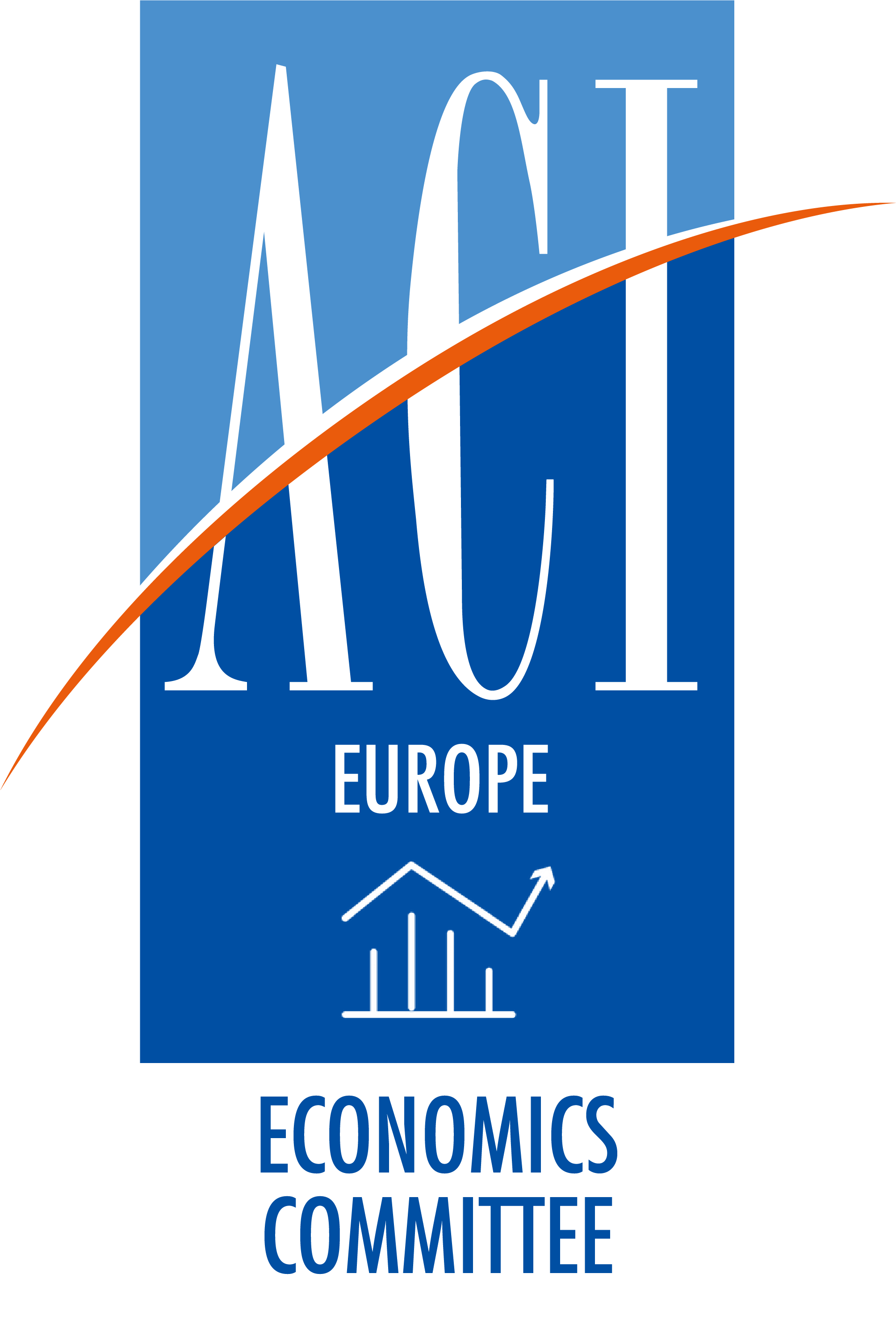Economics Committee
 The ACI EUROPE Economics Committee is a group of economic, strategic and financial professionals who work within the airport sector. This includes both airport operator employees as well as those who offer their services to a range of airport operators on a consultancy basis (World Business Partners).
The ACI EUROPE Economics Committee is a group of economic, strategic and financial professionals who work within the airport sector. This includes both airport operator employees as well as those who offer their services to a range of airport operators on a consultancy basis (World Business Partners).The Committee meets twice a year – typically in autumn and spring - with each meeting hosted by a member of the Committee.
Current Chair: Camilo Perez Perez, Groupe ADP
Current Vice-Chair: Sean Murphy, daa
The Committee currently has 90 members. Each meeting typically has 40-50 attendees.
Alongside the 2 meetings, the Economics Committee also sets itself 3 objectives annually, which are presented to the Board of ACI EUROPE in January of each year. These objectives are aligned with the wider Strategic Plan of ACI EUROPE, and are fulfilled by ACI EUROPE staff, with support from the Committee.
In practice the Committee fulfils 3 key roles:
- To provide a forum for airport professionals to meet and hear from external experts
- To discuss issues relating to airport economics
- To guide the work of ACI EUROPE in Brussels (e.g. devising best practices, inputting to studies being performed, to inform ACI EUROPE positions on specific issues or regulatory proposals).
The Committee aims to be flexible and responsive. This means that meeting agendas are tailored to reflect the latest issues & challenges facing the industry, and as a result individual meeting agendas can vary considerably. Input is always welcome from Committee members, as to what could be discussed at each meeting.
The topics below are frequently discussed:
Airport Charges – e.g.
- Compliance with the EU Airport Charges Directive
- Airport competition inc. market power tests
- Specific regulatory approaches in individual countries
- Types of regulation
Investment & Ownership –e.g.
- Airport ownership models
- Privitisation processes
- Capital expenditure programmes including capacity expansion
- External investors
Efficiency & Performance Management – e.g.
- Key Performance Indicators
- Performance management frameworks
- Cost reduction & quality improvement programmes
Developments in the airline industry
- Customers’ business model adjustments
- Self-connect and other business process innovations
Serving airline clients
- Airport marketing programmes
- Incentive & discount schemes
- Modulation and differentiation of charges
The wider economic impact of aviation
- Direct, indirect and catalytic impacts
- Impacts at the airport, in the region and for the country
Connectivity
- Importance of connectivity for travellers
- Ways to measure
Compliance with wider regulatory frameworks –e.g.
- EU State Aid rules
- Standard competition law (e.g. for 3rd party access to landside)

